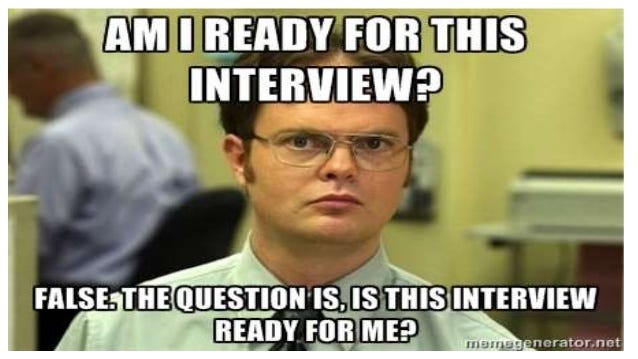Practice makes awkward: a case for prioritizing connections over corrections in user interviews
Practice makes awkward: a case for prioritizing connections over corrections in user interviews


I was wrong. Or at least partially wrong, I think.
As a UX researcher, I spend a lot of my time coaching and educating my colleagues so that they can conduct better research themselves.
Recently, I’ve started second-guessing the helpfulness of focusing on the do’s and don’ts of conducting user interviews.
Rules, Rules, Rules
In the workshops and one-on-one training sessions that I’ve conducted, I’ve put a heavy emphasis on what I’ll lovingly refer to as The Rules of Interviewing. This is by no means an exhaustive list, but The Rules
Thou shalt not ask closed-ended questions.
Thou must remaineth neutral.
Thou shalt not breaketh the silence before thy participant.
You get the idea. There are tons of best practices and they are a LOT to think about when you’re also trying to make a contrived, transactional conversation feel natural.
I’ve seen (and been guilty of) boiling vexation when interviewers — who were supposed to be good — have violated these holy commandments of research by starting questions with “did,” “do,” and “is,” instead of “what,” “who,” and “how.” I’ve also seen (and been guilty of) the mental flagellation that we inflict on ourselves when we commit a sin like cutting off a participant or saying something overly congratulatory.
A Lesson from Improv
Recently, I was reading Mick Napier’s excellent book, Improvise: Scene From the Inside Out, and I realized the trouble with trying to strictly adhere to rules in a complex, improvised, and artificial social situation: focusing too much on the rules can cause you to miss the point entirely.
Like interviewing, improv has rules that have been passed down from the great minds of their discipline. Things like “always yes-and,” “avoid asking questions (make statements instead),” and “establish the who, what, and where of the scene as soon as possible” often plague the minds of improvisers as they try to create a scene out of thin air. Napier makes the argument that focusing on the rules often makes scenes worse because instead of listening, connecting, and reacting, we’re often stuck thinking in our own heads about whether or not we’re following the rules.
I believe the same problem often befalls interviewers. While The Rules of Interviewing are helpful guideposts that can help us get better data and even have better interviews, thinking about the rules can do the exact opposite.
In interviewing as in improv, our primary goal should be to make a connection with the person we’re talking to so that we can discover the stories, struggles, and relationships that we want so desperately to learn about.
Like a finger pointing at the moon, these rules are meant to guide us in the direction of insights, they’re not insights in and of themselves.
Furthermore, it is entirely possible to reach insights without following the rules. Napier talks about how he’s seen many great improv scenes that have blatantly violated the sanctity of the rules. This makes me think of times when I’ve heard great interviews — some of Marc Maron’s WTF podcast interviews come to mind — that have elicited astonishingly deep truths about the interviewee’s experience despite shirking many of The Rules of Interviewing.
Tradeoffs
Now, to be clear, I’m not saying that we should ignore the rules entirely. Bright and renowned individuals from a host of disciplines have toiled over them, and they exist to help us get better, less biased data.
That said, I think we need to be conscious of the tradeoffs between focusing on our technique and focusing on the person we’re conversing with.
Specifically, how much data are we leaving on the table by asking a question in a certain way? How did the question facilitate or take away from the connection with the participant? How much of our attention are we spending on trying to word a question correctly compared to the content and tone of the answer we receive?
Advice
For those of us who want to improve our interviewing skills without being waylaid by overthinking, my suggestion for practice is a single word: moderation. If there is a particular rule that you tend to violate frequently and you feel like it’s hurting the quality of your conversations (and data), make an effort to improve on that front, but don’t make it the focus of your interview. If you try to make a positive change and you slip up, shrug it off and keep your head in the game.
The interview is about whatever you set out to learn about, not the thing that you’re working on to get better at interviewing.
The nice thing about interviewing is that you can practice almost any time that you’re conversing with another human. It’s less costly to be awkward while trying to keep a question open-ended with a friend or family member than with a stranger who you’re paying to learn from, so try to make the most of informal practice opportunities where the stakes and pressure are lower.
Like any other skill, interviewing takes time to learn, and the fundamentals should be seen as tools to help you along the way rather than barriers you need to overcome.
In the meantime, don’t sacrifice your ability to stay in the moment and learn from someone solely in the name of following the rules.
Just dust yourself off and keep trying to connect, relate, and discover. In the end, that’s all we’re here to do.
